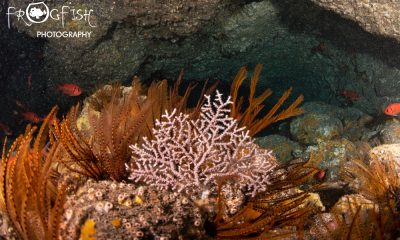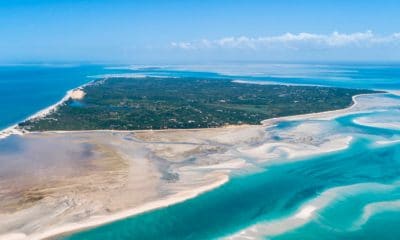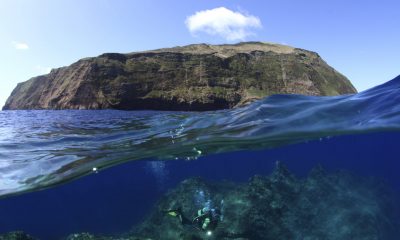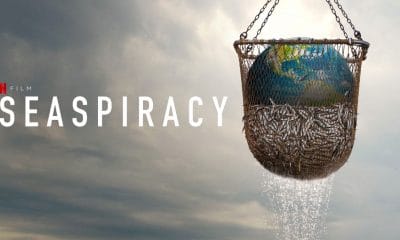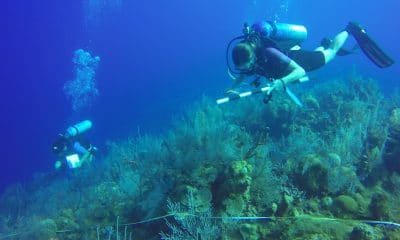News
National Marine Aquarium Asked To Drop Fish From Menu
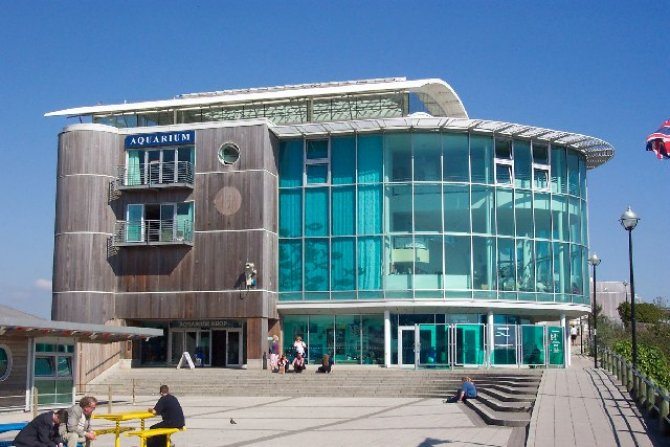
On the 19th Feb PETA (People for the Ethical Treatment of Animals) wrote to the Plymouth National Marine Aquarium calling on policy-makers to stop serving dead fish at in-house restaurants – a practice that contradicts the aquarium’s invitation to the public to appreciate the wonder of living fish.
I have long been aware of the pain and stress we put marine animals through when killing them for food, as well as the immense disregard for the fragile ecosystem that supports them. I know from personal experience the great work the Plymouth National Marine Aquarium does for marine research and public awareness of our oceans, but having a fish restaurant is sending confusing and mixed messages about conservation and animal welfare. Surely they should be leading the way into researching alternative food sources that can be equally financially beneficial as well as ethical.
If you are interested by the following article please write your own letter to Dr David Gibson, Managing Director, National Marine Aquarium or copy the one below and let him (and us) know your feelings. This topic will be opened up in our Forum Pages.
PETA – “Experts agree that fish are sensitive, interesting animals who feel pain and have complex social structures. No one – particularly a facility that is supposed to promote respect for sea life – needs to put them on the menu”, says PETA Director Mimi Bekhechi. “The rise of so many delicious, readily available faux-fish dishes means visitors can enjoy a tasty meal without slaughtering animals.”
Biologists have found that fish develop relationships with each other and grieve when their companions die. Some fish are capable of using tools, while others gather information by eavesdropping. These intelligent, sensitive animals are so good-natured that Dr Sylvia Earle, the world’s leading marine biologist, has said, “I wouldn’t deliberately eat a grouper any more than I’d eat a cocker spaniel”. PETA, whose motto reads, in part, that “animals are not ours to eat”, encourage all caring people to choose tasty vegan options.
Their letter reads:
Dr David Gibson, Managing Director, National Marine Aquarium
From: Dawn Carr, PETA
10 February 2015
Dear Dr Gibson,
I’m writing from People for the Ethical Treatment of Animals (PETA) UK on behalf of all the fish in the sea to ask the National Marine Aquarium to end the sale of seafood in its cafés. The National Marine Aquarium advertises itself as a place where people can cultivate an understanding of and admiration for sea animals. Yet after inviting people to look on these glorious, fascinating animals in awe, it’s odd that your cafés then invite people to stick a fork in them. Serving fish in an aquarium is like serving monkey nuggets at a zoo.
Talk of “sustainable seafood” fails to consider the implications for individual fish, but the fact remains that the seafood in your cafés is made from living sea animals who treasured life and were needlessly subjected to pain and fear.
And human consumption of sea animals is the very cause of the catastrophic destruction of life in the Earth’s oceans. Fish farms introduce non-native animals into sensitive ecosystems, and commercial fishing ships “clear-cut” the ocean floor and inadvertently maim and kill billions of non-target marine animals, including porpoises and sea lions. By encouraging people to eat sea animals, you perpetuate the problem.
Although fish may not always express suffering in ways that humans can easily recognise, experts around the world agree that fish are sensitive, interesting animals who feel pain and have complex social structures. In fact, a 2014 study from the University of Cambridge showed that fish have good memories, work collaboratively to achieve goals and have cognitive abilities that can actually surpass those of dogs and some primates. Leading marine biologist Dr Sylvia Earle said, “You know, fish are sensitive, they have personalities, they hurt when they’re wounded”.
She has also said, “I used to eat all kinds of seafood, but I know too much now. Both about how I value them alive and as individual components of what makes the world work. I’d much rather see grouper swimming in the ocean than swimming in butter with lemon slices”.
I do hope you’ll agree with her and instead consider offering your visitors animal–friendly seafood options, such as fish-free fish fingers, faux-fish cakes and even vegetarian prawns. These options are delicious, environmentally friendly and free of the toxins and cholesterol found in fish flesh and – most importantly – no one has to die for them!
Please let us know that you’ve made the responsible decision to stop serving marine animals in the National Marine Aquarium’s cafés. I can be reached at DawnC@peta.org.uk or on 020 7837 6327, extension 226. Thank you for your consideration.
Kind regards,
Dawn Carr
Manager
Special Projects
The Plymouth Herald published a reply from the Aquarium in which Dr Gibson says:
“We work to educate consumers and our visitors on the importance of eating fish and seafood that has been sourced in a sustainable way, to help nurture a sympathetic understanding of our oceans.
“All fish and seafood served in the aquarium cafe is ethically sourced and MSC compliant.
“We have a robust purchasing policy in place that is proactive in sustainable and seasonal fish, ensuring we maintain the highest levels of sustainable fish sourcing practices possible.”
Dr Gibson said the aquarium aims to educate consumers on how best to source and eat fish and seafood responsibly.
He added: “We’ve also spearheaded a number of initiatives, including helping Plymouth to win the world’s first Fish2fork Blue Fish award and our current campaign for Plymouth to become a Sustainable Fish City.”
This statement from Dr Gibson is of a type I have heard many times before and in my opinion it simply tries to justifiey and rationalise the insidious demise of our seas.
What do you think? Head over to the Scubaverse Forums to let us know.
Gear News
Scubapro Free Octopus Promotion 2024
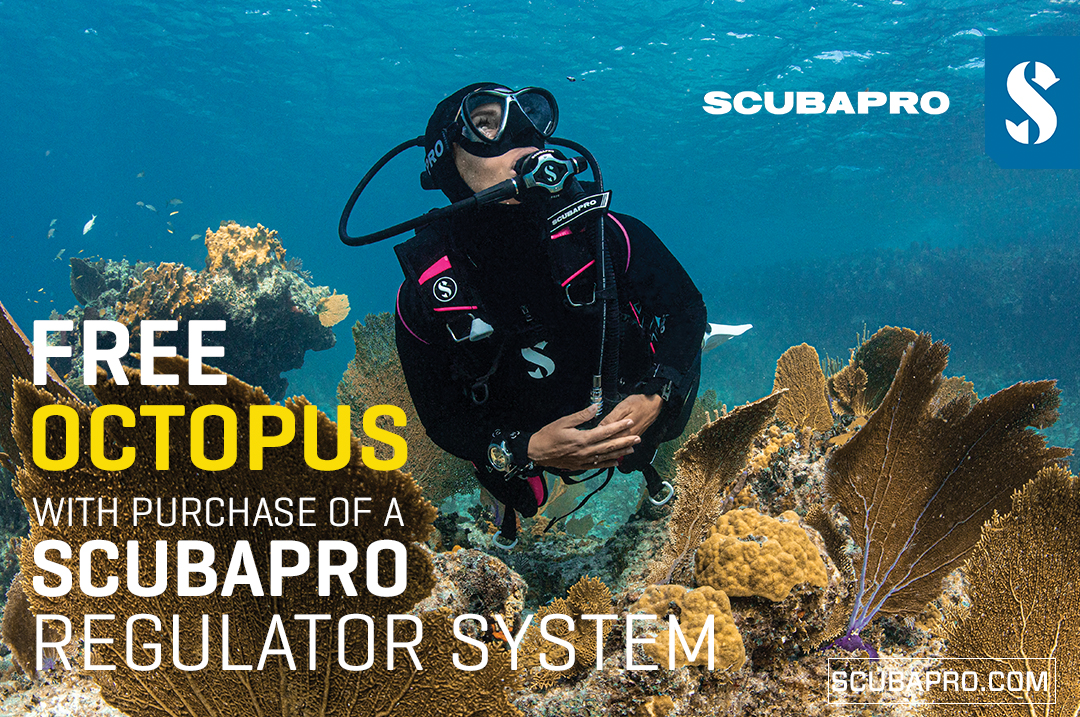
Free Octopus with every purchase of a SCUBAPRO regulator system
Just in time for the spring season, divers can save money with the FREE OCTOPUS SPRING PROMOTION! Until July 31st SCUBAPRO offers an Octopus for free
with every purchase of a regulator system!
Get a free S270 OCTOPUS with purchase of these combinations:
MK25 EVO or MK19 EVO with A700
MK25 EVO or MK19 EVO with S620Ti
MK25 EVO or MK19 EVO with D420
MK25 EVO Din mit S620Ti-X
Get a free R105 OCTOPUS with purchase of the following combinations:
MK25 EVO or MK19 EVO with G260
MK25 EVO or MK17 EVO with S600
SCUBAPRO offers a 30-year first owner warranty on all regulators, with a revision period of two years or 100 dives. All SCUBAPRO regulators are of course certified according to the new European test standard EN250-2014.
Available at participating SCUBAPRO dealers. Promotion may not be available in all regions. Find an authorized SCUBAPRO Dealer at scubapro.com.
More information available on www.scubapro.com.
Blogs
Northern Red Sea Reefs and Wrecks Trip Report, Part 3: The Mighty Thistlegorm
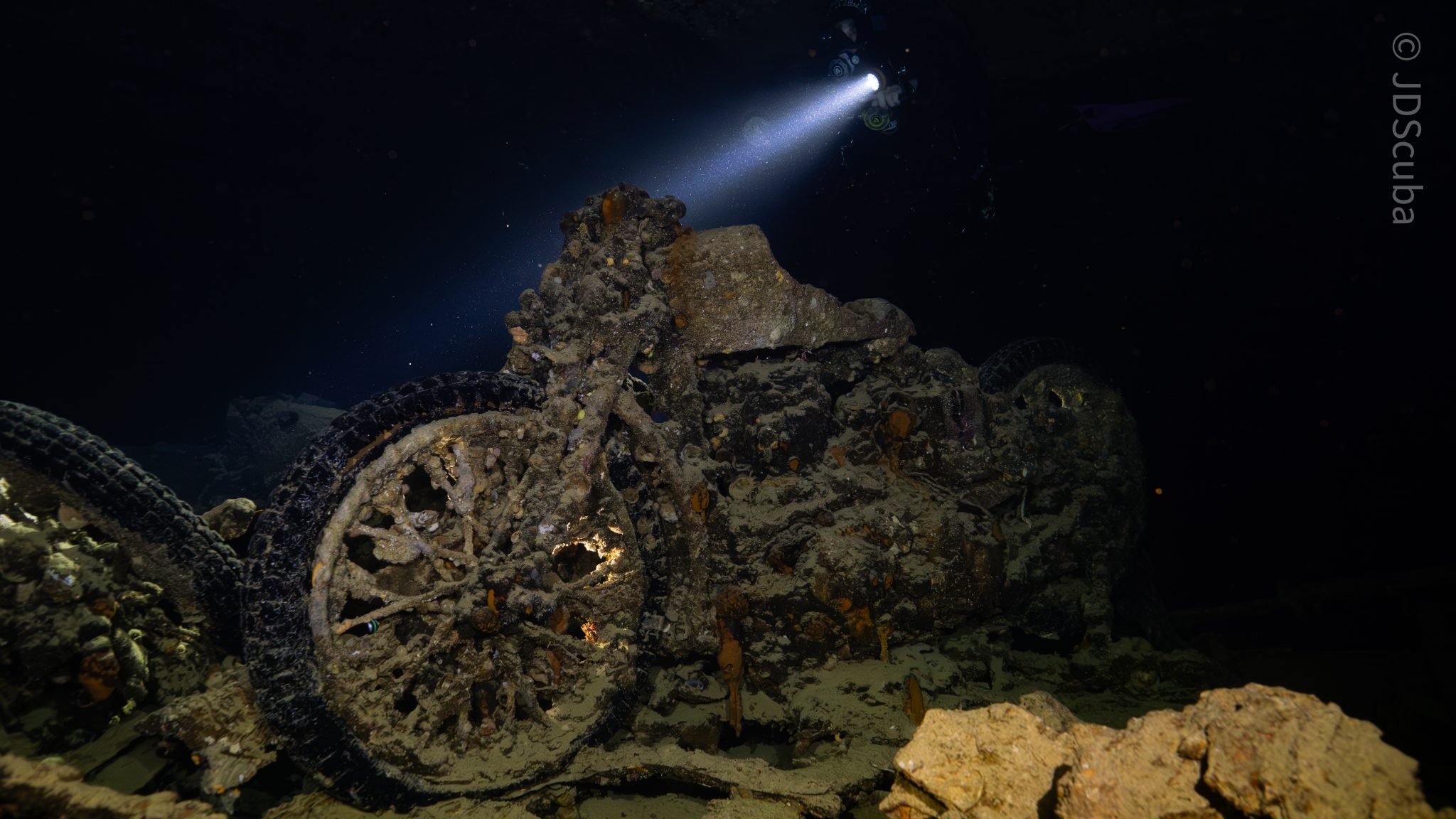
Jake Davies boards Ghazala Explorer for an unforgettable Red Sea diving experience…
Overnight, the wind picked up, making the planned morning dive a bit bumpy on the Zodiacs to the drop point on Thomas Reef. There, we would dive along the reef before descending through the canyon and then passing under the arch before ascending the wall with a gentle drift. The site provided great encounters with more pelagic species, including shoals of large barracuda, tuna, and bigeye trevally.
Once back on the boat, it was time to get everything tied down again as we would head back south. This time, with the wind behind us, heading to Ras Mohammed to dive Jackfish Alley for another great gentle drift wall dive before then heading up the coast towards the Gulf of Suez to moor up at the wreck of the Thistlegorm. This being the highlight wreck dive of the trip and for many onboard, including myself, it was the first time diving this iconic wreck. I had heard so much about the wreck from friends, and globally, this is a must on any diver’s list. Fortunately for us, there was only one other boat at the site, which was a rarity. A great briefing was delivered by Ahmed, who provided a detailed background about the wreck’s history along with all the required safety information as the currents and visibility at the site can be variable.
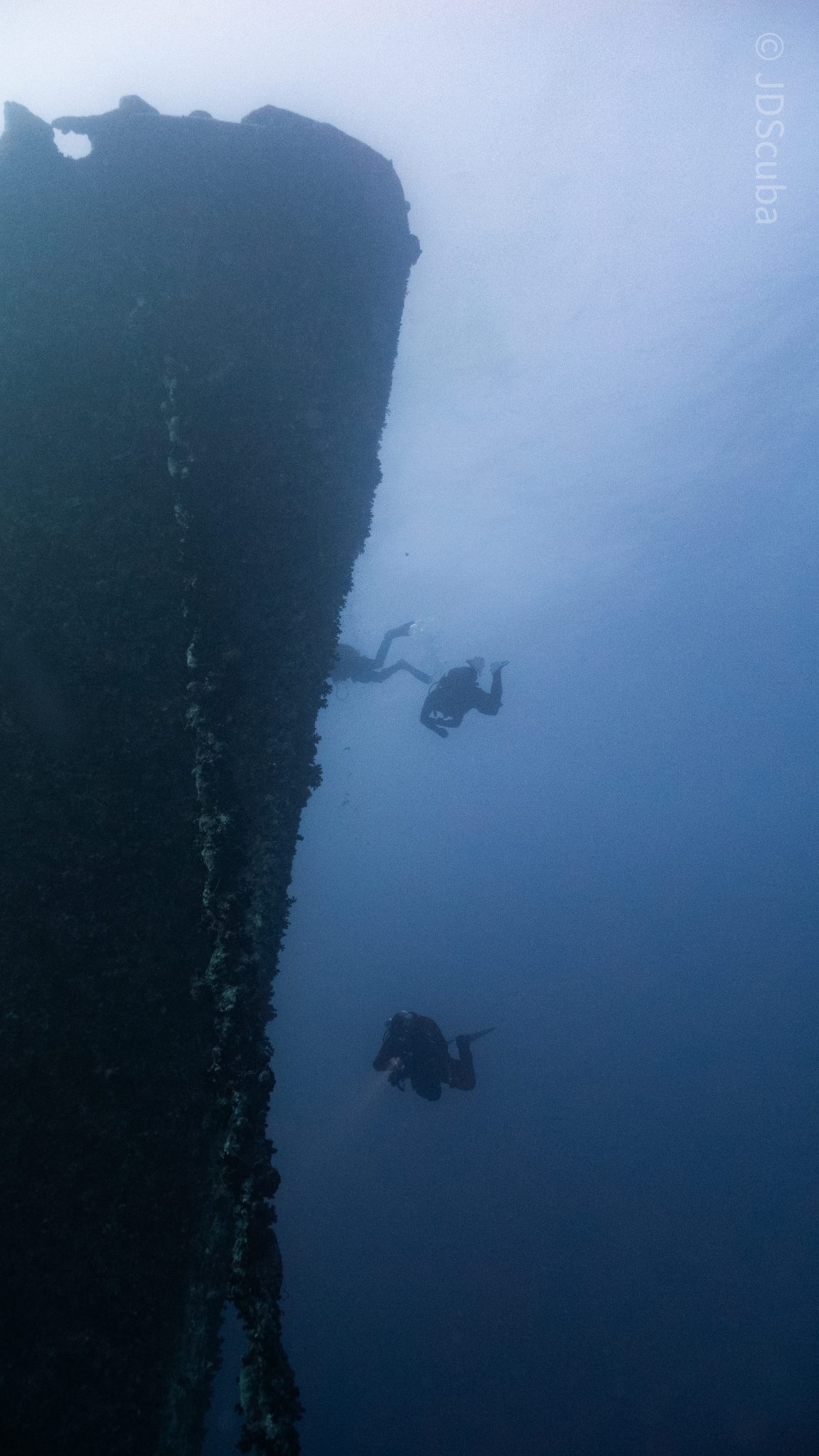
Kitting up, there was a lot of excitement on deck before entering the water and heading down the shoreline. Descending to the wreck, there was a light northerly current which reduced the visibility, making it feel more like the conditions that can be found off the Welsh coast. At 10m from the bottom, the outline of the wreck appeared as we reached the area of the wreck which had been bombed, as our mooring line was attached to part of the propeller shaft. Arriving on deck, instantly everywhere you looked there were many of the supplies which the ship was carrying, including Bren Carrier tanks and projectiles that instantly stood out.
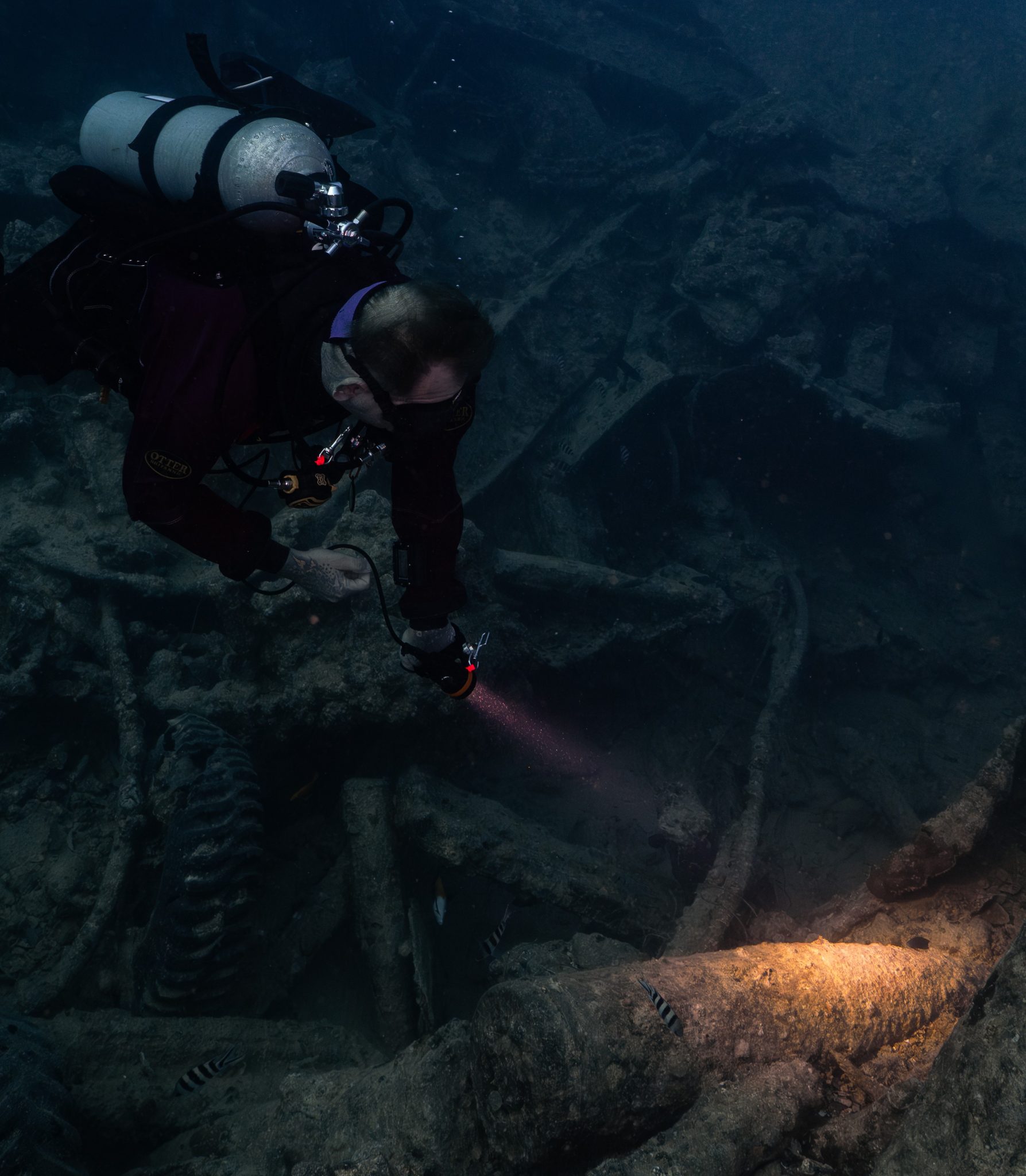
We headed around the exterior, taking a look at the large propeller and guns mounted on deck before entering the wreck on the port side to take a look in the holds. It was incredible to see all the trucks, Norton 16H, and BSA motorcycles still perfectly stacked within, providing a real snapshot in time.
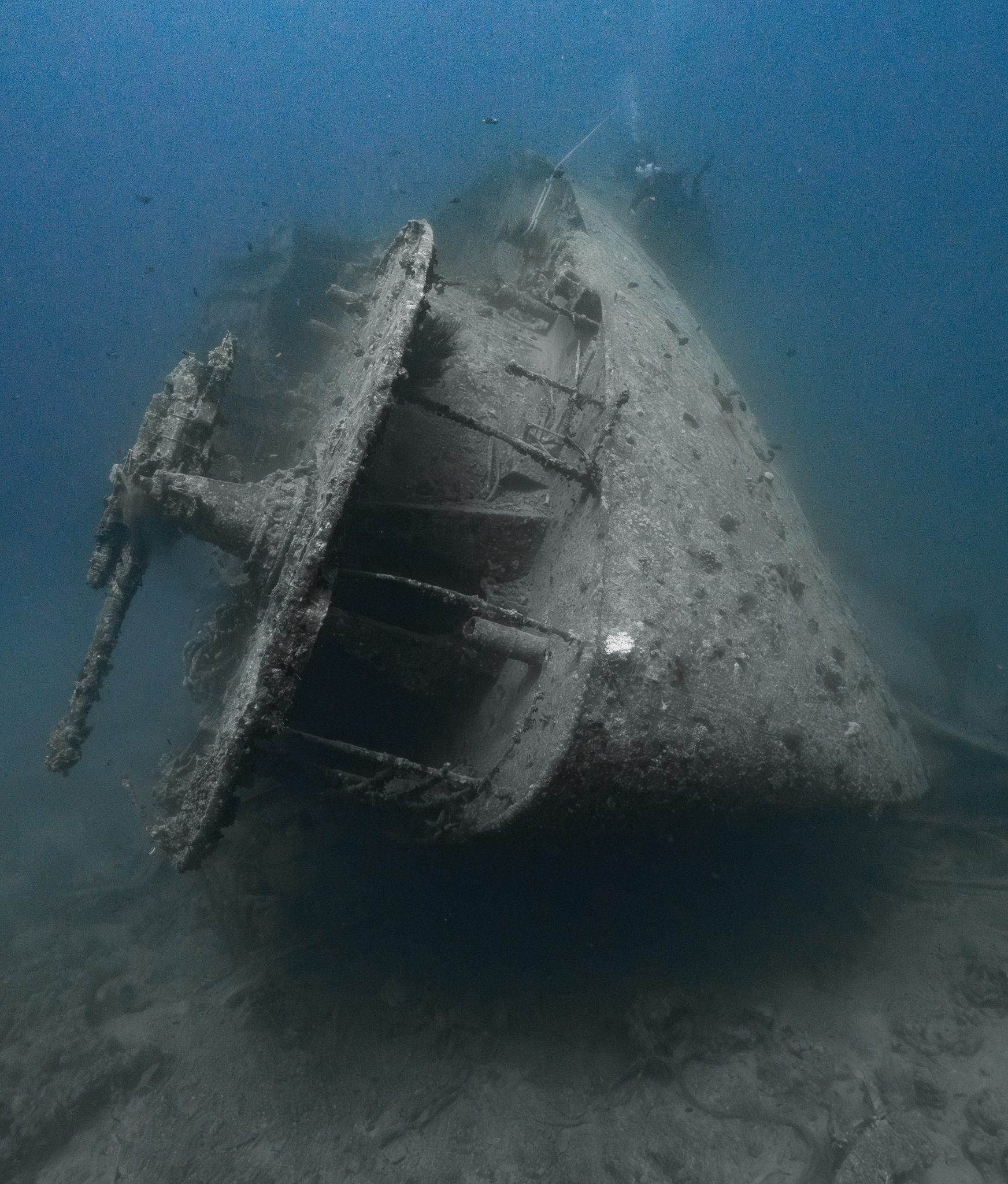
Overall, we had four dives on the Thistlegorm, where for all of the dives we were the only group in the water, and at times, there were just three of us on the whole wreck, which made it even more special, especially knowing that most days the wreck has hundreds of divers. Along with the history of the wreck, there was plenty of marine life on the wreck and around, from big green turtles to batfish, along with shoals of mackerel being hunted by trevally. Some unforgettable dives.
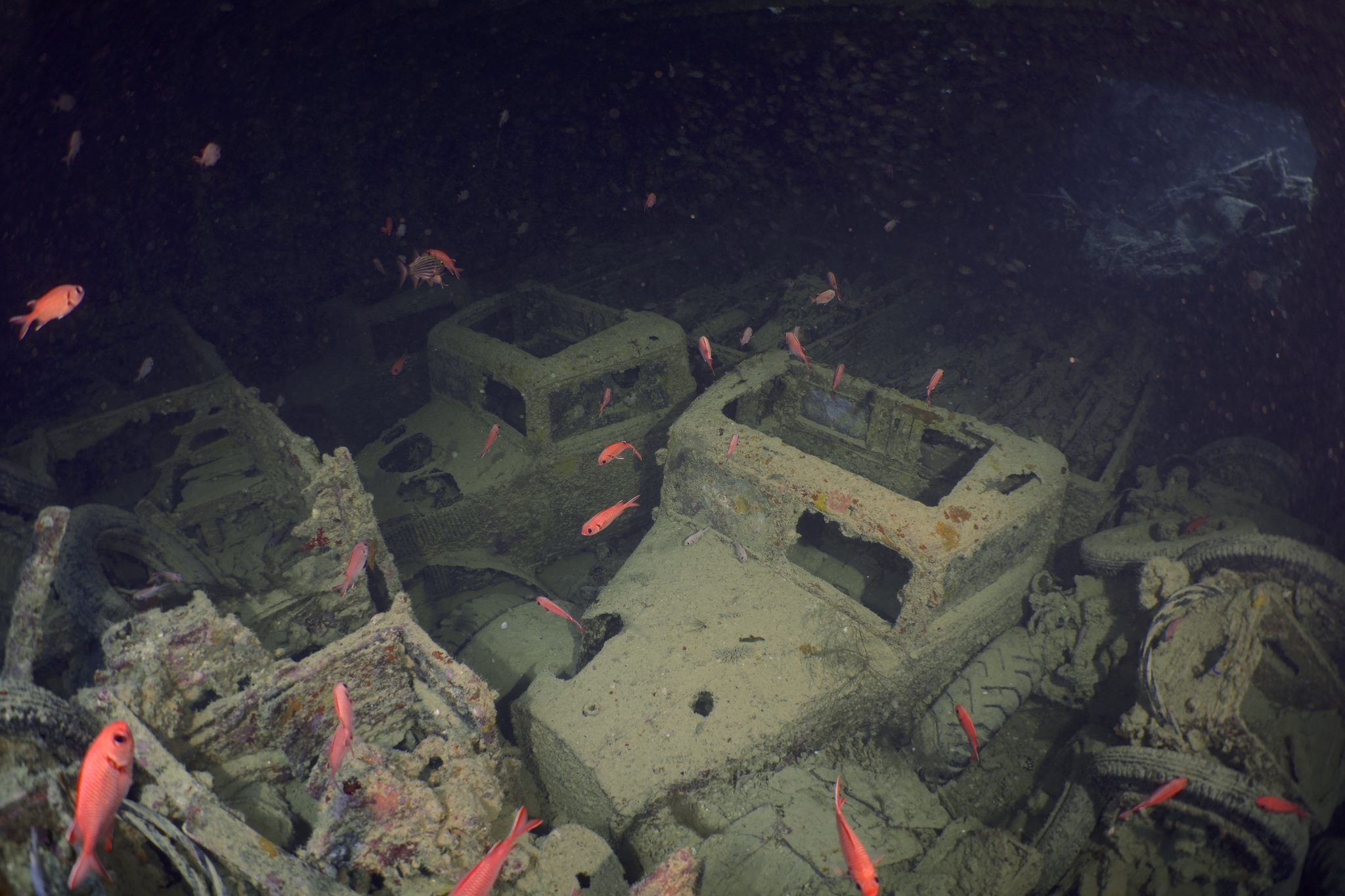
The final leg of the trip saw us cross back over the Suez Canal to the Gobal Islands where we planned to stay the night and do three dives at the Dolphin House for the potential of sharing the dive with dolphins. The site, which included a channel that was teeming with reef fish, especially large numbers of goatfish that swam in large shoals along the edge of the reef. These were nice relaxing dives to end the week. Unfortunately, the dolphins didn’t show up, which was okay as like all marine life they are difficult to predict and you can’t guarantee what’s going to be seen. With the last dive complete, we headed back to port for the final night where it was time to clean all the kit and pack before the departure flight the next day.
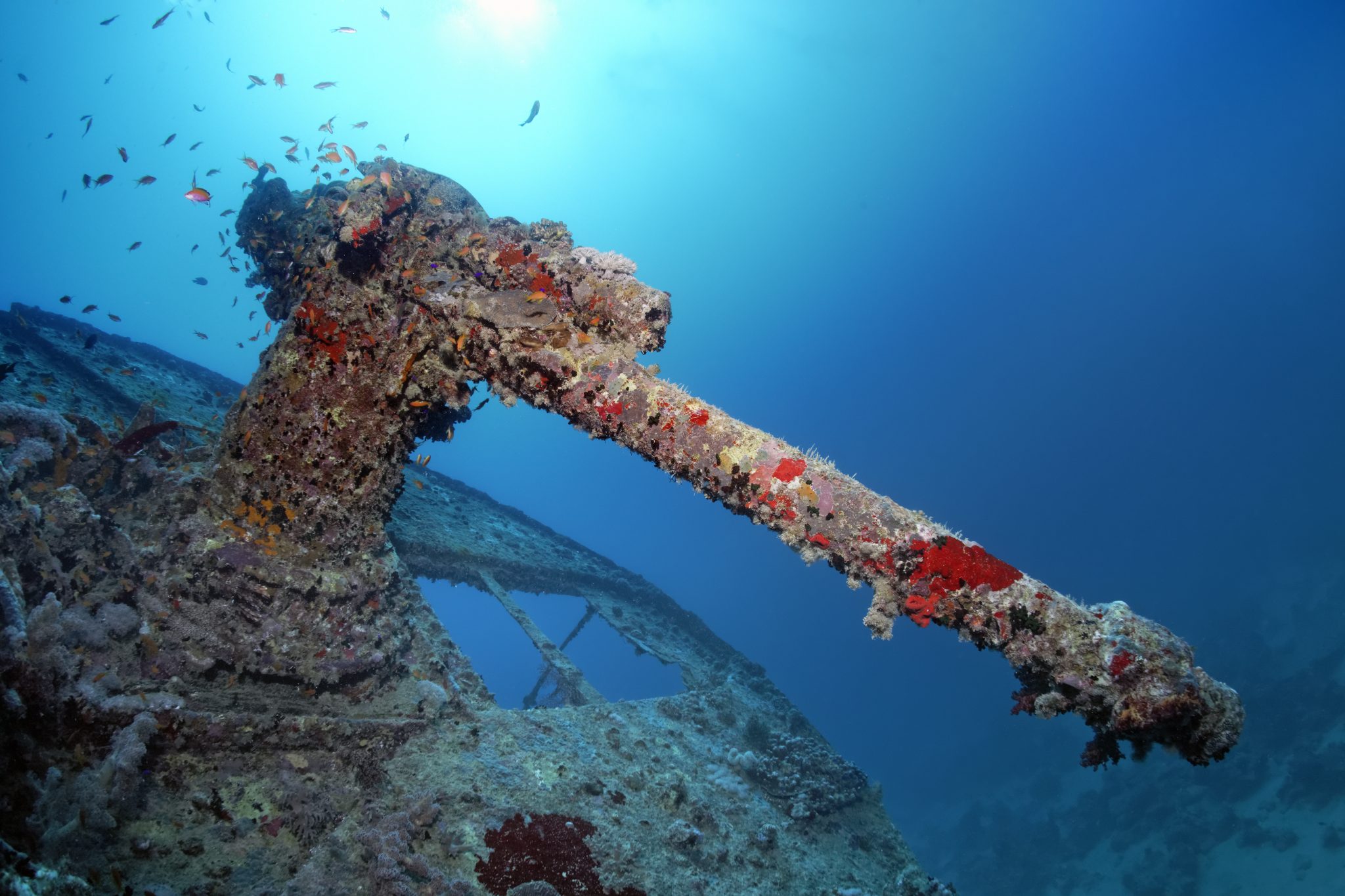
The whole week from start to finish on Ghazala Explorer was amazing; the boat had all the facilities you need for a comfortable week aboard. The crew were always there to help throughout the day and the chefs providing top quality food which was required after every dive. The itinerary providing some of the best diving with a nice mixture of wreck and reef dives. I would recommend the trip to anyone, whether it’s your first Red Sea liveaboard in the Red Sea or you’re revisiting. Hopefully, it’s not too long before I head back to explore more of the Red Sea onboard Ghazala Explorer.
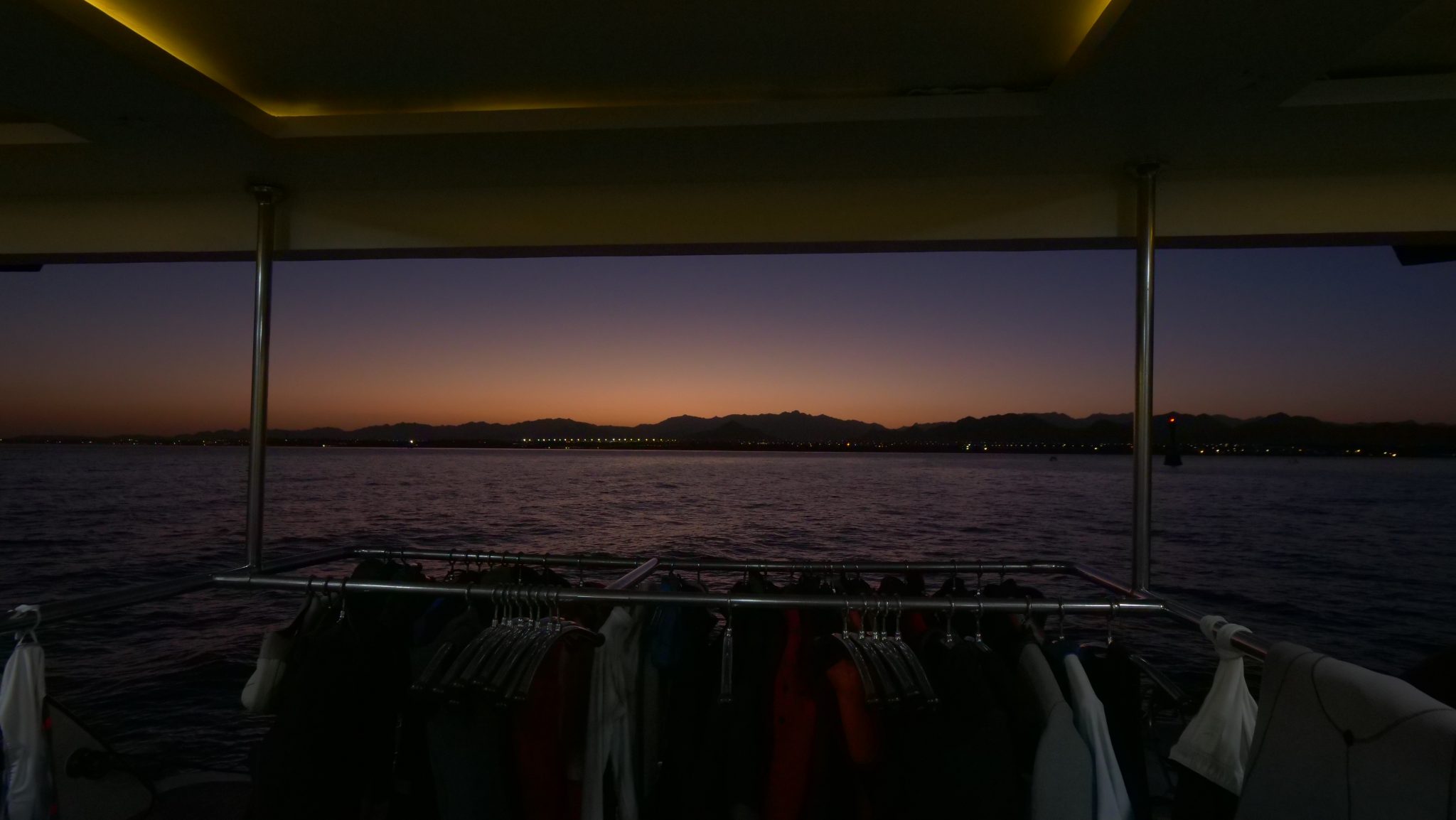
To find out more about the Northern Red Sea reef and wrecks itineraries aboard Ghazala Explorer, or to book, contact Scuba Travel now:
Email: dive@scubatravel.com
Tel: +44 (0)1483 411590
Photos: Jake Davies / Avalon.Red
-

 News3 months ago
News3 months agoHone your underwater photography skills with Alphamarine Photography at Red Sea Diving Safari in March
-

 News3 months ago
News3 months agoCapturing Critters in Lembeh Underwater Photography Workshop 2024: Event Roundup
-

 Marine Life & Conservation Blogs2 months ago
Marine Life & Conservation Blogs2 months agoCreature Feature: Swell Sharks
-

 Blogs2 months ago
Blogs2 months agoMurex Resorts: Passport to Paradise!
-

 Blogs2 months ago
Blogs2 months agoDiver Discovering Whale Skeletons Beneath Ice Judged World’s Best Underwater Photograph
-

 Gear Reviews3 months ago
Gear Reviews3 months agoGear Review: Oceanic+ Dive Housing for iPhone
-

 Marine Life & Conservation2 months ago
Marine Life & Conservation2 months agoSave the Manatee Club launches brand new webcams at Silver Springs State Park, Florida
-

 News3 months ago
News3 months agoWorld’s Best Underwater Photographers Unveil Breathtaking Images at World Shootout 2023



